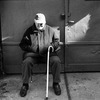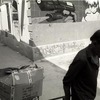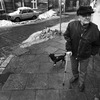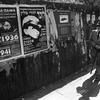Controversial Book Published
The publishers wavered as controversy raged last Autumn, but a landmark study went on sale yesterday in bookshops across the country.
'Priests in the Face of the Security Services' tells a tale that many in the Church wanted to keep quiet. It has long been inferred that ten per cent of the priesthood collaborated with the Communist secret police, but only recently has critical evidence come to light.
However, as it goes, the author of the controversial new tome is neither a journalist nor a historian. He is a man of the cloth, and in many circles a profoundly respected one.
Father Tadeusz Isakowicz-Zaleski was twice beaten up by the Security Services during the mid-eighties. These attacks came in the wake of the notorious murder of fellow Solidarity priest Jerzy Popieluszko.
As access to files became easier over the last three years, Father Isakowicz-Zaleski discovered reams of information relating to his life under the Soviet system. Names of fellow priests who had allegedly spied on him were laid bare, as was a video of himself being gagged and beaten by thugs.
When Father Zaleski discussed his discoveries with Church authorities in 2005, he was encouraged to brush the evidence under the carpet - quite literally to burn it. The Church had won the hearts of the nation during the trying Soviet era, and bishops were nervous about jeopardising that image. But Zaleski was convinced that the truth would come out in the end, and that it was best handled openly.
Many within the Church opposed Zaleski's research, and on one occasion he was ordered to refrain from speaking to the press. However, vindication came in December when another source exposed the incoming Archbishop of Warsaw as a former collaborator.
Father Zaleski's book focuses on the Cracow region, and over thirty figures are discussed as informers. Of these, four hold powerful positions within the Church hierarchy. One resigned in January - the Rector of Cracow Cathedral - as allegations began to spill over.
However, Father Zaleski's book also seeks to reveal the courage of those that resisted the threats of the totalitarian regime. Given that the overwhelming majority of the priesthood did not buckle under the pressure, Zaleski sees the general picture as a positive one. Although some priests were compromised, the Church did indeed act as the shepherd of the nation during the long Soviet era, and Pope John Paul II endures as its icon.

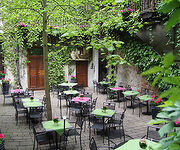 Kawaleria Szarza Smaku
Kawaleria Szarza Smaku
 Europejska
Europejska
 Krakow Pinball Museum
Krakow Pinball Museum



